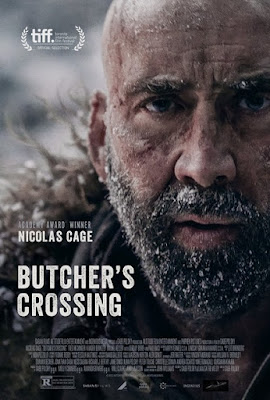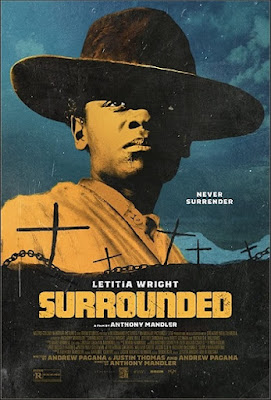Pandora is a frontier widow. That means she is a survivor, by definition. The homestead she shares with her willful teen daughter Hester looks dangerously secluded, but they have their faith. They are also surprisingly resourceful, but they need more guns in Audrey Cummings’ Place of Bones, which releases today on DVD.
They might live in the middle of nowhere, but trouble still finds Pandora and Hester. First, they hear gunshots. The next day, Hester stumbles over Calhoun’s bleeding body near her late father’s gravesite. Pandora manages to stop his bleeding, but his gangrene-infested leg needs to go. Of course, she confiscates his bullets first.
Slightly perturbed by the amputation, Calhoun assumes Pandora intends to steal his saddle-bags stuffed with cash, which he himself stole from his fellow bank-robbing bandits. However, she has no desire for blood money. Instead, she is rightly concerned someone will come looking for it—and Calhoun must reluctantly admit she is not wrong.
That someone is Bear John, along with three of his henchmen. Calhoun already killed three others, including Bear’s idiot brother. Unfortunately, he and his tracker, Cherokee Jack (who isn’t really Cherokee), are probably about as dangerous and lowdown as outlaws get. Eventually, Pandora will have give Calhoun his gun back, so they can try to hold off the killers together, but it will take them a while to work up to that level of trust.
The first 95% of Place of Bones consists of serviceable but rather unremarkable revisionist Western material. However, there is such a shocking twist ending, it seems strange the film has not generated more online buzz. Indeed, Cummings (who also helmed the pedal-to-the-metal horror film, She Never Died) and screenwriter Richard Taylor so scrupulously avoid telegraphing the big reveal, it genuinely surprises—even stuns.
Regardless, Heather Graham is surprisingly intense and forceful as Pandora, even though Cummings and the makeup department appear conflicted whether to accentuate her magazine-cover image or glam her down for the sake of gritty naturalism. Essentially, they split the difference, presenting her as impossibly clean for a dirt farmer, decked out in a primly schoolmarmish wardrobe.























